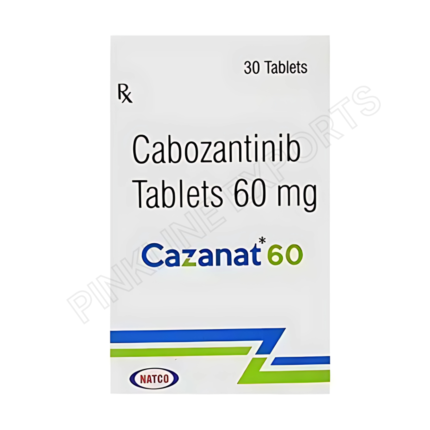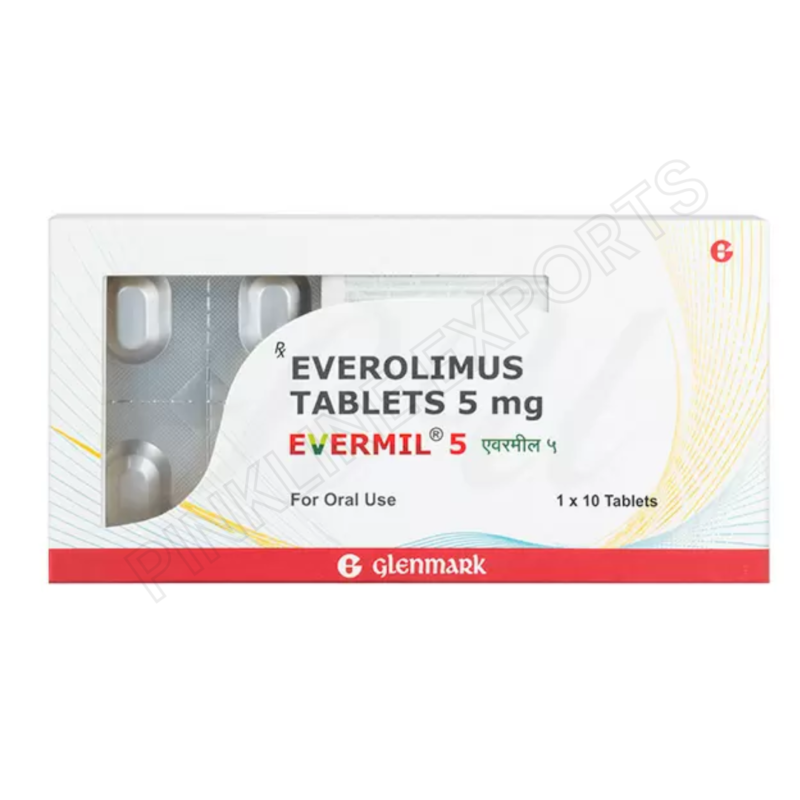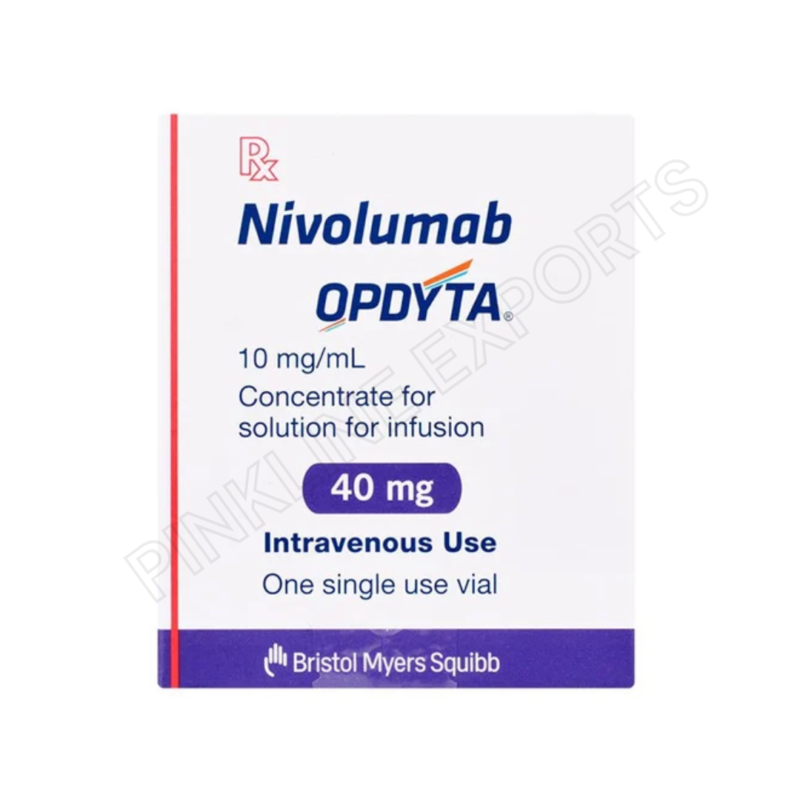

Cabozantinib Tablets 40 Mg – Cazanat
$134.00 – $390.00Price range: $134.00 through $390.00
Cabozantinib Tablets 40 mg
is a tyrosine kinase inhibitor used to treat advanced cancers such as kidney, liver, and medullary thyroid cancer. It works by blocking tumor blood supply and growth signals. Taken once daily on an empty stomach under oncologist supervision.
Description
Cabozantinib Tablets 40 mg
Cabozantinib Tablets 40 mg is an oral targeted cancer therapy prescribed for the treatment of advanced cancers such as renal cell carcinoma (RCC), hepatocellular carcinoma (HCC), and medullary thyroid cancer (MTC). It is a tyrosine kinase inhibitor (TKI) that interrupts the growth and spread of cancer cells by blocking multiple cell signaling pathways involved in tumor development and angiogenesis.
Cabozantinib targets several receptors, including VEGFR1, VEGFR2, VEGFR3, MET, and AXL, which play a key role in tumor progression, blood vessel formation, drug resistance, and metastatic spread.
Indications
Cabozantinib 40 mg is indicated for:
- Treatment of advanced renal cell carcinoma (RCC) in adults, particularly after prior anti-angiogenic therapy
- Treatment of hepatocellular carcinoma (HCC) in patients who have previously received sorafenib
- Treatment of medullary thyroid cancer (MTC) that is progressive or metastatic
This 40 mg dosage strength may be prescribed as part of a personalized dosing regimen, often in combination with other strengths like 20 mg or 60 mg.
Mechanism of Action
Cabozantinib inhibits several tyrosine kinase receptors that regulate key processes in cancer progression, such as:
- Tumor cell division and survival
- Blood vessel formation (angiogenesis)
- Cancer spread to other organs
By blocking these receptors, Cabozantinib helps:
- Slow or stop tumor growth
- Cut off nutrients and oxygen supply required by tumors
- Delay disease progression and improve survival outcomes
Dosage and Administration
- Recommended adult dose: Often adjusted to a total of 60 mg per day
- Strength: 40 mg per tablet
- Route: Oral administration
- Intake: Once daily on an empty stomach (no food for at least 2 hours before and 1 hour after dosing)
- Tablets must be swallowed whole with water. Do not split, crush, or chew.
Dosage adjustments may be necessary based on patient response, side effect profile, or organ function. Always follow your oncologist’s prescription.
Composition
- Active Ingredient: Cabozantinib 40 mg
- Form: Film-coated oral tablet
- Packaging: Usually supplied in strips or bottles of 28 or 30 tablets
Common Side Effects
- Fatigue or weakness
- Diarrhea
- Nausea or vomiting
- Loss of appetite
- Weight loss
- Mouth ulcers
- Palmar-plantar erythrodysesthesia (hand-foot syndrome)
- High blood pressure
Serious Side Effects
- Bleeding or hemorrhage
- Liver enzyme abnormalities
- Gastrointestinal perforation
- Blood clots
- Heart rhythm disorder (QT prolongation)
- Wound healing complications
Your doctor will advise regular monitoring through blood tests and clinical evaluations.
Contraindications and Precautions
- Not for use during pregnancy or breastfeeding
- Use with caution in patients with liver, heart, or gastrointestinal conditions
- Monitor for high blood pressure and adjust dose if needed
- Avoid strong CYP3A4 inducers or inhibitors while on this medication
- Stop use before major surgery and resume only when wounds are healed
Storage and Handling
- Store at 15°C to 30°C (59°F to 86°F)
- Keep in original packaging away from heat, light, and moisture
- Keep out of reach of children and pets
Frequently Asked Questions (FAQs)
1. What is Cabozantinib 40 mg used for?
It is used to treat advanced kidney cancer, liver cancer, and medullary thyroid cancer by blocking tumor growth signals.
2. Is Cabozantinib 40 mg a standard dose?
Cabozantinib is commonly prescribed at doses totaling 60 mg per day, so the 40 mg tablet may be used with other strengths to adjust dosing as needed.
3. How should I take Cabozantinib 40 mg?
Take it once daily on an empty stomach. Do not eat two hours before and one hour after taking the tablet.
4. Can Cabozantinib cure cancer?
It does not cure cancer but helps control tumor growth and progression, improving survival and quality of life in many patients.
5. What are the common side effects?
The most common include diarrhea, fatigue, nausea, high blood pressure, and mouth sores.
6. Can I take this medicine with other cancer drugs?
Cabozantinib may sometimes be used in combination with immune checkpoint inhibitors. Always consult your oncologist.
7. What should I do if I miss a dose?
Take the missed dose if less than 12 hours have passed. If more than 12 hours have passed, skip the missed dose and continue with your next scheduled dose.
8. Is Cabozantinib a chemotherapy drug?
No. It is a targeted therapy drug known as a tyrosine kinase inhibitor.
9. Can pregnant women take this medicine?
No. Cabozantinib is not safe during pregnancy and can cause harm to the unborn baby.
10. Does Cabozantinib have generic versions?
Yes. Generic versions are available, offering cost-effective alternatives to the branded drug Cabometyx or Cometriq.

.svg)














Reviews
There are no reviews yet.